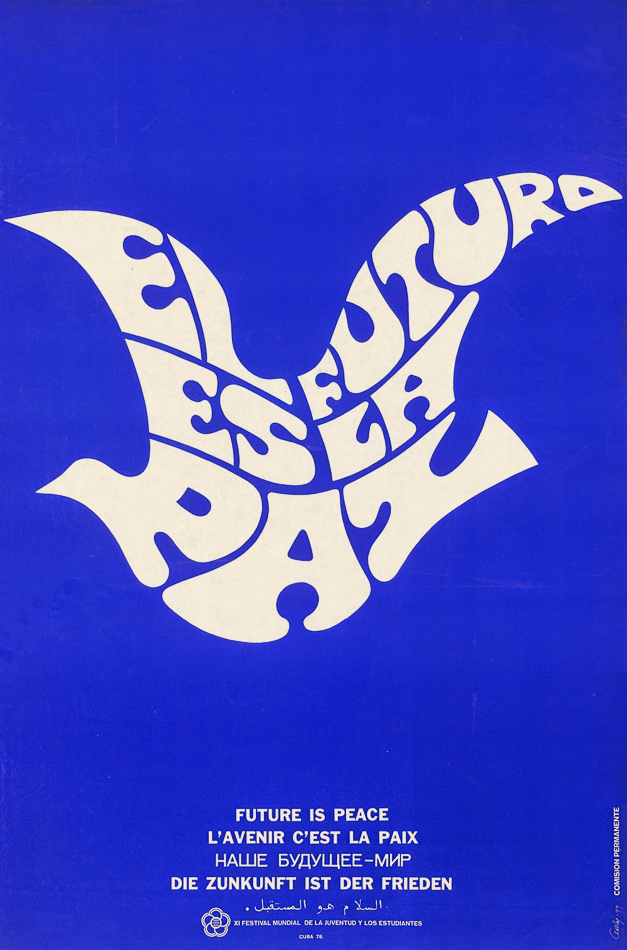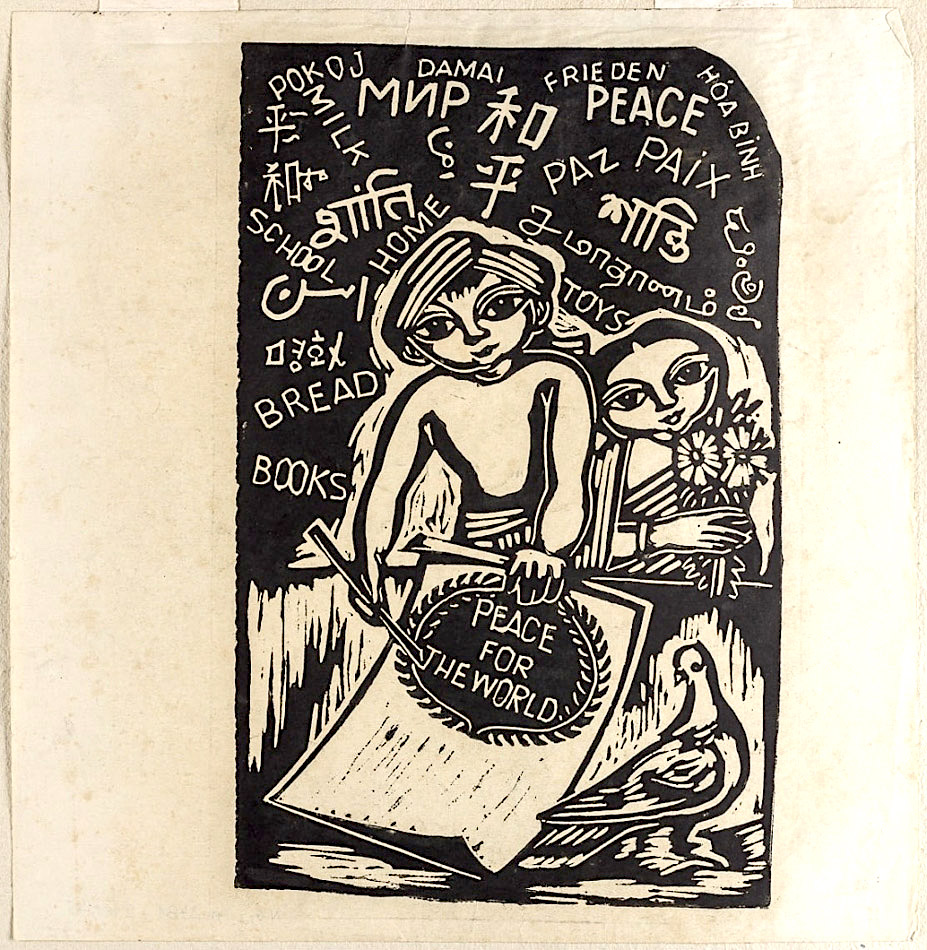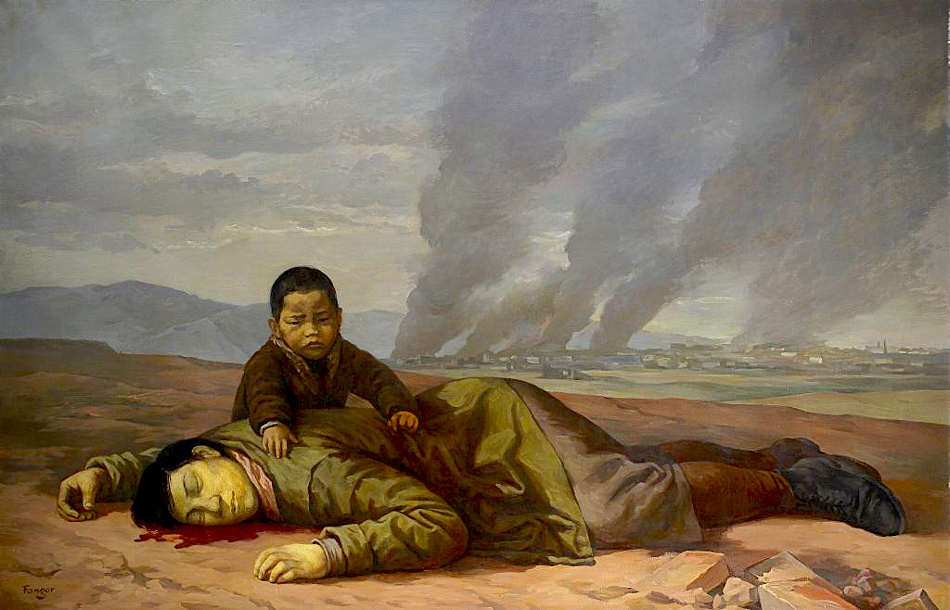In response to the atmosphere of war that the U.S. is creating during the Great Lockdown, Vijay Prashad and Abdallah El Harif are issuing a fresh appeal for peace.
By Vijay Prashad
Tricontinental: Institute for Social Research
 On March 23, the UN Secretary General António Guterres called for a ceasefire. “The fury of the virus,” he said, “illustrates the folly of war.” In a recent report, the Armed Conflict Location & Event Data Project (ACLED) wrote that the “call for a global ceasefire has not had the desired result.” From Afghanistan to Yemen, the war drums continue to beat, and the hideousness of war continues to define social life.
On March 23, the UN Secretary General António Guterres called for a ceasefire. “The fury of the virus,” he said, “illustrates the folly of war.” In a recent report, the Armed Conflict Location & Event Data Project (ACLED) wrote that the “call for a global ceasefire has not had the desired result.” From Afghanistan to Yemen, the war drums continue to beat, and the hideousness of war continues to define social life.
A global pandemic is not only a time for urgent action; it is also a time for reflection, a time to reconsider priorities. But this has not been the case for those who have the habits of war and the patience of a wild boar.
The government of the United States, despite the gravity of Covid-19, is rushing headlong into a hallucinatory war with China, blaming it for the virus, threatening to undermine it at every turn; the U.S. Indo-Pacific Command has sought $20 billion of additional funding to create a missile wall to threaten China (in a document called “The National Defense Authorization Act [NDAA] 20): Regain the Advantage”).
Amid the Great Lockdown, an atmosphere of war descends; it is maddening to see us drift into conflict when humans should be finding ways to cooperate.
In Newsletter 18 (2020), I interviewed Abdallah El Harif about the war-mongering against China. El Harif is a founder of the Democratic Way (a Moroccan radical left party); he was its first national secretary and is now the deputy national secretary in charge of international relations.
El Harif is an engineer who studied at Mines ParisTech. He was a member of a clandestine Moroccan organization that fought against the dictatorship of King Hassan II and was imprisoned for 17 years for his role in the fight for democracy and socialism. El Harif and I have now drafted an appeal for peace, which we hope that you will read and circulate.
On March 15, 1950, the World Peace Council sent out the Stockholm Appeal, a short text that called for a ban on nuclear weapons and that would eventually be signed by almost 2 million people. The appeal was made up of three elegant points:
- We demand the outlawing of atomic weapons as instruments of intimidation and mass murder of peoples. We demand strict international control to enforce this measure.
- We believe that any government which first uses atomic weapons against any other country whatsoever will be committing a crime against humanity and should be dealt with as a war criminal.
- We call on all men and women of good will throughout the world to sign this appeal.
Please Contribute to Consortium News’ 25th Anniversary Spring Fund Drive
Now, 70 years later, the nuclear arsenal is far more lethal, and even the conventional weapons available dwarf the atomic bombs that were dropped by the United States on Hiroshima and Nagasaki in 1945. In 1950, there were 304 nuclear warheads in the world (299 in the United States), while now there are 13,355 warheads in the world (5,800 in the United States); and each of the 2020 warheads is far more destructive than those from the early years of this terrible technology.
Something like the Stockholm Appeal is imperative today.
To call for a ban on weapons of mass destruction is not an abstract issue; it is one that points directly towards a bloc of countries, led by the United States of America, that is stubbornly persisting in using force to maintain and extend their global dominance.
In the midst of this global pandemic, the United States threatens to deepen conflicts with China, Iran, and Venezuela, including moving a naval carrier group to effectively embargo Venezuelan ports, and moving ships into the Persian Gulf to challenge the right of Iranian boats to international waters.
Meanwhile, the United States has said that it will position aggressive missile batteries and anti-missile radar arrays in a ring around China. None of these countries — China, Iran and Venezuela — have made any aggressive move against the United States; it is the United States that has imposed a conflict on these countries.
If an appeal is to be drafted now, it cannot be made in an anaemic, universal fashion. Any call for peace in our time must specifically be a call against the imperialist warmongering that emanates from — but is not only authored by — Washington, D.C.
Our assessment of the imposition of a state of a war by the United States relies upon four points:
- The United States already has the largest military arsenal and the widest military footprint in the world. According to the most recent data, the U.S. government spent at least $732 billion in 2019 on its military; we say “at least” because there are secret disbursements of funds to the massive intelligence wings that are not publicly available. From 2018 to 2019, the United States increased its military budget by 5.3 percent, the amount of which is the same as the total German military budget. Almost 40 percent of global military spending is done by the United States. The United States has a combined total of more than 500 military bases in almost every country on the planet. The United States Navy has 20 of the world’s 44 active aircraft carriers, while other U.S. allies have 21 of them; this means that the U.S. and its allied states have 41 of the 44 aircraft carriers (China has two and Russia has one). There is no question about the overwhelming superiority of US military force.
- The United States is now using its full ability to expand its nuclear and conventional domination into space and into cyber warfare with its Space Command (re-established in 2019) and Cyber Command (created in 2009). The United States has developed an interceptor ballistic missile (SM-3) that it has tested in space, and it is testing such fanciful weapons as particle-beam weaponry, plasma-based weaponry, and kinetic bombardment. In 2017, Trump announced his government’s commitment to such new weaponry. The U.S. government will spend at least $481 billion between 2018 and 2024 to develop new advanced weapons systems, including autonomous vehicles, counter-drones, cyber-weapons, and robotics. The U.S. Army has already tested its Advanced Hypersonic Weapon, which can travel at Mach 5 (roughly 3,800 miles per hour, five times the speed of sound), so that it can reach any place on earth within an hour; this weapon is part of the U.S. military’s Conventional Prompt Global Strike program.
- The U.S. military complex has advanced its hybrid war program. This program includes a range of techniques to undermine governments and political projects, including the mobilisation of United States power over international institutions (such as the International Monetary Fund, the World Bank, and the SWIFT wire service) to prevent governments from managing basic economic activity, as well as the use of U.S. diplomatic power to isolate governments, the use of sanctions methods to prevent private companies from doing business with certain governments, the use of information warfare to render governments and political forces to be criminals or terrorists, and so on. This powerful complex of instruments is able – in the plain light of day – to destabilize governments and to justify regime change.

Asela Pérez (Cuba), El Futuro es la Paz/The Future is Peace, XI Festival Mundial de la Juventud y los Estudiantes, Havana, Cuba, 1978.
- The U.S. government, along with its NATO partners as well as U.S. and European weapons manufacturers, continue to flood the world with the deadliest weapons. The top five arms exporters (Lockheed Martin, Boeing, Northrop Grumman, Raytheon, and General Dynamics) are located in the United States. These five firms alone account for 35 percent of the top 100 of the world’s arms dealer sales in 2018 (the most recent figures); the total U.S. arms sales account for 59 percent of all arms sales that year. This was an increase of 7.2 percent over the U.S. sales in 2017. These weapons are sold to countries that should instead spend their precious surplus on education, health, and food programs. For example, in West Asia and North Africa, the greatest threat to the people is not only the terrorist in his Toyota Hilux, but it is also the arms dealer in an air-conditioned hotel room.
The world in which the Stockholm Appeal was written is markedly different than the world that we live in today. A new appeal is needed. We developed it while we were discussing it in Bouficha, Tunisia; let’s call it the Bouficha Appeal.
We, the peoples of the world:
- Stand against the warmongering of U.S. imperialism, which seeks to impose dangerous wars on an already fragile planet.
- Stand against the saturation of the world with weapons of all kinds, which inflame conflicts and often drive political processes toward endless wars.
- Stand against the use of military power to prevent the social development of the peoples of the world; defend the right of countries to build their sovereignty and their dignity.

Ahmed Mofeed (Palestine), Mahdi Amel, 2020.
On May 18, 1987, Hassan Hamdan (also known as Mahdi Amel) was assassinated on the streets of Beirut. Mahdi Amel remains one of the most important Marxist thinkers in the Arab world. In what appear to be decidedly bleak times, one of his most important – and most poetic – lines shine brightly for us:
You are not defeated,
As long as you are resisting.
On May 11, Évelyn Hamdan, Mahdi Amel’s partner and an avid reader of this newsletter, left our world. This newsletter is dedicated to our comrade Évelyn and to their children.
Vijay Prashad, an Indian historian, journalist and commentator, is the executive director of Tricontinental: Institute for Social Research and the chief editor of Left Word Books.
This article is from Tricontinental: Institute for Social Research.
The views expressed are solely those of the author and may or may not reflect those of Consortium News.
Please Contribute to Consortium News’ 25th Anniversary Spring Fund Drive
Donate securely with  PayPal here.
PayPal here.
Or securely by credit card or check by clicking the red button:





Someone needs to inform the world’s war criminals of humanity’s new unanimously chosen 2020 reality:
War is over.
Peace.
Thank you so much for this! We want a better world, and that only happens when we work together in peace and solidarity. Unfortunately, the US and Trump especially have completely poisoned the well of international cooperation and solidarity in this pivotal moment and set us on course for a potentially very ugly future. I really hope we can wrestle power away from this “Last Man Standing” game of dominance, consumption and destruction.
Every other year or so my wife and I spend a month or two in southern Mexico during the winter. Although I will always be an outsider and my language skills could be better, I always feel welcome and safe while there. The people are generally of less means but – more gentle, kind, well-mannered, considerate, empathetic, etc., than people in my own country – by far. While our home in the US is much more comfortable than our lodgings there, I always miss the easy vibe and pace of life in Mexico when we return home. I feel more at peace there. The underlying tension and anger in the US is easier to see when I’ve been away for awhile. As a country are we acting like we are pursuing or even desire a peaceful world ? Not from what I’ve seen in my almost 66-years.
“To call for a ban on weapons of mass destruction is not an abstract issue; it is one that points directly towards a bloc of countries, led by the United States of America, that is stubbornly persisting in using force to maintain and extend their global dominance.”